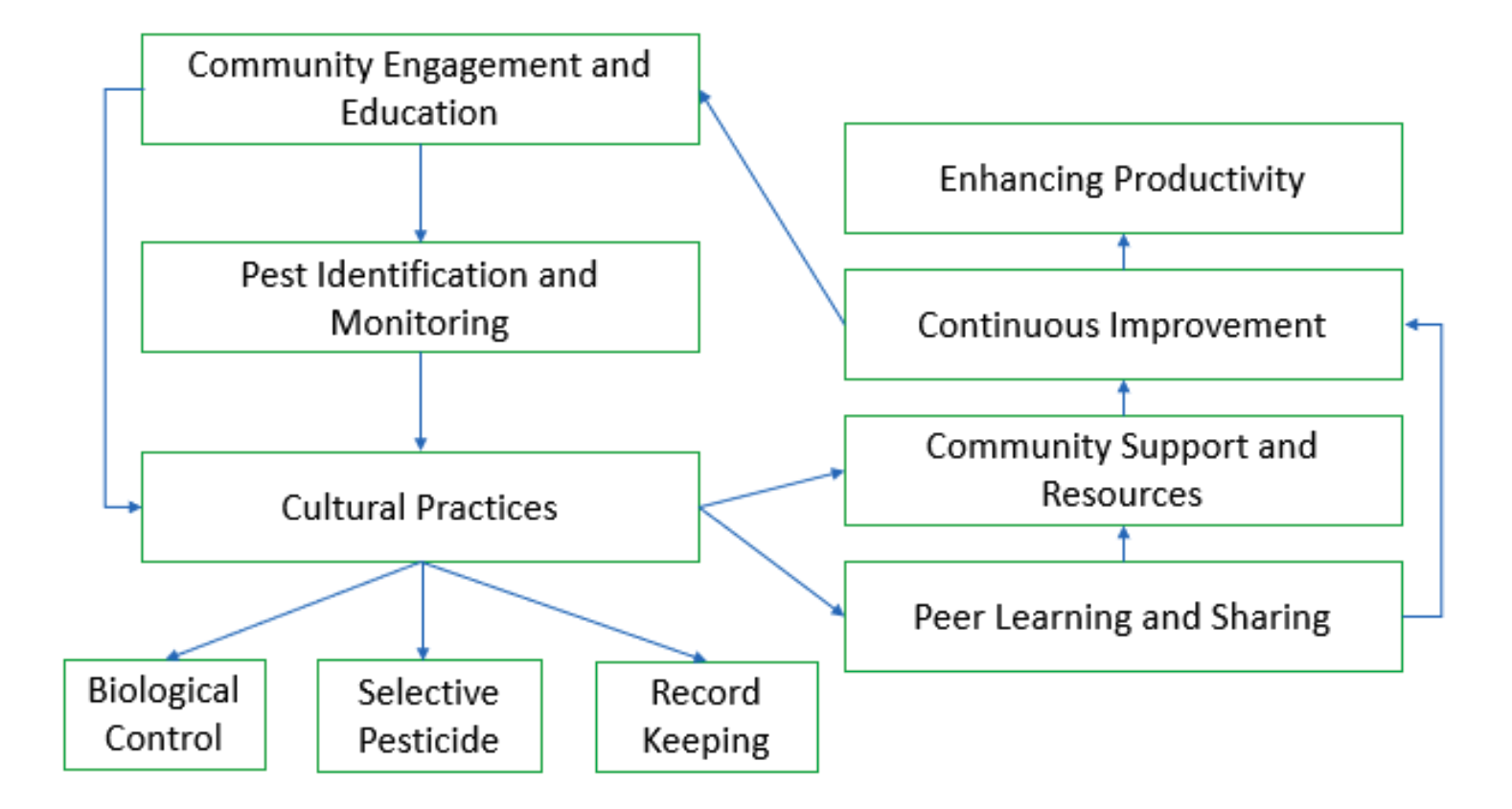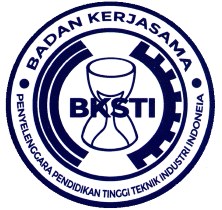Empowering Communities with Integrated Pest Management for Sustainable Agriculture
DOI:
https://doi.org/10.12928/spekta.v5i1.9326Keywords:
Integrated Pest Management, Pest Control, Community EmpowermentAbstract
Background: The aim of this community development initiative, centered around community engagement, is to address the pressing issue of declining agricultural productivity due to pest infestations in the Asahan Regency, a developing area. Through educational and training programs, the initiative seeks to advocate for Integrated Pest Management (IPM) practices and safe pesticide usage among farmers, while also addressing the environmental impacts of chemical pesticide use.
Contribution: The primary focus is to gauge the impact of these initiatives in fostering sustainable and environmentally responsible agricultural practices in Asahan Regency, ultimately enhancing the overall well-being of the farming community.
Method: A total of 50 farmers actively participated in these programs, all of whom derived substantial benefits that directly contributed to the improvement of their livelihoods.
Results: The implementation of IPM with a community development approach has the potential to significantly enhance paddy rice productivity while promoting sustainable agriculture
Conclusion: By involving the local community, improving pest control methods, reducing environmental impact, and fostering knowledge sharing, this approach can lead to positive outcomes for both farmers and the environment
References
A. De Freitas Bueno, Y. C. Colmenarez, R. A. Carnevalli, and W. P. Sutil, “Benefits and Perspectives of Adopting Soybean-IPM: The Success of a Brazilian Programme,” Plant Health Cases, Jun. 2023, doi: 10.1079/planthealthcases.2023.0006
F. Jacquet et al., “Pesticide-free agriculture as a new paradigm for research,” Agronomy for Sustainable Development, vol. 42, no. 1, Jan. 2022, doi: 10.1007/s13593-021-00742-8
Sutardi et al., “The Transformation of Rice Crop Technology in Indonesia: Innovation and Sustainable Food Security,” Agronomy, vol. 13, no. 1, pp. 1–14, 2023, doi: 10.3390/agronomy13010001
A. Ickowitz, B. Powell, D. Rowland, A. Jones, and T. Sunderland, “Agricultural intensification, dietary diversity, and markets in the global food security narrative,” Glob. Food Sec., vol. 20, no. November 2018, pp. 9–16, 2019, doi: 10.1016/j.gfs.2018.11.002
C. Sattler et al., “Reducing pesticides and increasing crop diversification offer ecological and economic benefits for farmers — A case study in Cambodian rice fields,” Insects, vol. 12, no. 3, 2021, doi: 10.3390/insects12030267
M. P. Ali et al., “Establishing next-generation pest control services in rice fields: eco-agriculture,” Sci. Rep., vol. 9, no. 1, pp. 1–9, 2019, doi: 10.1038/s41598-019-46688-6
M. P. Ali, G. C. Orta, M. M. M. Kabir, S. S. Haque, M. Biswas, and D. A. Landis, “Landscape structure influences natural pest suppression in a rice agroecosystem,” Sci. Rep., vol. 13, pp. 1–11, 2023, doi: 10.1038/s41598-023-41786-y
M. K. Miyittah, R. K. Kosivi, S. K. Tulashie, M. N. Addi, and J. Y. Tawiah, “The need for alternative pest management methods to mitigate risks among cocoa farmers in the Volta region, Ghana,” Heliyon, vol. 8, no. 12, 2022, doi: 10.1016/j.heliyon.2022.e12591
D. J. Ecobichon, “Pesticide use in developing countries,” Toxicology, vol. 160, no. 1–3, pp. 27–33, Mar. 2001, doi: 10.1016/s0300-483x(00)00452-2
F. Sánchez-Bayo, “Indirect Effect of Pesticides on Insects and Other Arthropods,” Toxics, vol. 9, no. 8, p. 177, Jul. 2021, doi: 10.3390/toxics9080177
M. R. Aulia, “Strategi Pengembangan Agribisnis Kabupaten Asahan Agribusiness Development Strategy of Asahan Regency,” J. Agriust, vol. 1, no. 2, pp. 69–75, 2021, doi: 10.54367/agriust.v1i2.1437
S. Fahad et al., “Bio-based integrated pest management in rice: An agro-ecosystems friendly approach for agricultural sustainability,” J. Saudi Soc. Agric. Sci., vol. 20, no. 2, pp. 94–102, 2021, doi: 10.1016/j.jssas.2020.12.004
T. Yu, L. Mahe, Y. Li, X. Wei, X. Deng, and D. Zhang, “Benefits of Crop Rotation on Climate Resilience and Its Prospects in China,” Agronomy, vol. 12, no. 2, pp. 1–18, 2022, doi: 10.3390/agronomy12020436
T. I. Ofuya, A. I. Okunlola, and G. N. Mbata, “A Review of Insect Pest Management in Vegetable Crop Production in Nigeria,” Insects, vol. 14, no. 2, pp. 1–16, 2023, doi: 10.3390/insects14020111
S. H. Muhie, “Novel approaches and practices to sustainable agriculture,” J. Agric. Food Res., vol. 10, no. November, p. 100446, 2022, doi: 10.1016/j.jafr.2022.100446
A.d.F, Bueno, W.P. Sutil, S,M. Jahnke, G.A. Carvalho, M.F. Cingolani, Y.C. Colmenarez, and N. Corniani. 2023. Biological Control as Part of the Soybean Integrated Pest Management (IPM): Potential and Challenges. Agronomy, Vol. 13, no. 2532. 1-18, doi: 10.3390/agronomy13102532
O. Eryanto, R. A. Kuswardani, Z. Noer, and M. R. Aulia, “The Influence of Agricultural Extension Agents on Pest Management and Farmer Capability for Enhance Productivity in Asahan Regency,” Univers. J. Agric. Res., vol. 11, no. 18, pp. 849–859, 2023, doi: 10.13189/ujar.2023.110510
M. R. Aulia, S. Deras, and Y. Hutabarat, “Partisipasi Petani Dalam Kegiatan Kelompok Tani dan Kaitannya Dengan Produktivitas Padi Sawah di Desa Wonosari Kecamatan Tanjung Morawa Kabupaten Deli Serdang,” J. Agrisep, vol. 23, no. 2, pp. 18–26, 2022, doi: 10.21608/pshj.2022.250026
P. A. Bothikar and K. S. Pagire, “Integrated Pest Management (IPM) – A new dimension in sustainable agriculture development”, J. Adv. Education. Sci., vol. 2, no. 3, pp. 07–11, Aug. 2022. [Online]. Available: https://www.dzarc.com/education/article/view/127
O. Eryanto, R. A. Kuswardani, Z. Noer, and M. Reza, “Peran Penyuluh Terhadap Implementasi Pengelolaan OPT di Kabupaten Asahan,” J. Pertan. Agros, vol. 25, no. 4, pp. 3595–3604, 2023. [Online]. Available: https://publikasiilmiah.unwahas.ac.id/Mediagro/article/view/10425
A. Talukder, S. Naznin, S. Hossain, S. Sultana, M. I. Haq. 2022. Factors contributing to adoption of agricultural technologies: a case of integrated pest management (IPM) in Khulna district of Bangladesh. Food & Agribusiness Management (FABM), 3(2), 74-78, doi: 10.26480/fabm.02.2022.74.78

Downloads
Published
How to Cite
Issue
Section
License
Copyright (c) 2024 Muhammad Reza Aulia

This work is licensed under a Creative Commons Attribution-ShareAlike 4.0 International License.
Authors who publish with SPEKTA (Jurnal Pengabdian Kepada Masyarakat: Teknologi dan Aplikasi) agree to the following terms:
- Authors retain copyright and grant the journal the right of first publication with the work simultaneously licensed under a Creative Commons Attribution License (CC BY-SA 4.0) that allows others to share the work with an acknowledgment of the work's authorship and initial publication in this journal.
- Authors are able to enter into separate, additional contractual arrangements for the non-exclusive distribution of the journal's published version of the work (e.g., post it to an institutional repository or publish it in a book), with an acknowledgment of its initial publication in this journal.
- Authors are permitted and encouraged to post their work online (e.g., in institutional repositories or on their website) prior to and during the submission process, as it can lead to productive exchanges, as well as earlier and greater citation of published work.

This work is licensed under a Creative Commons Attribution-ShareAlike 4.0 International License.












